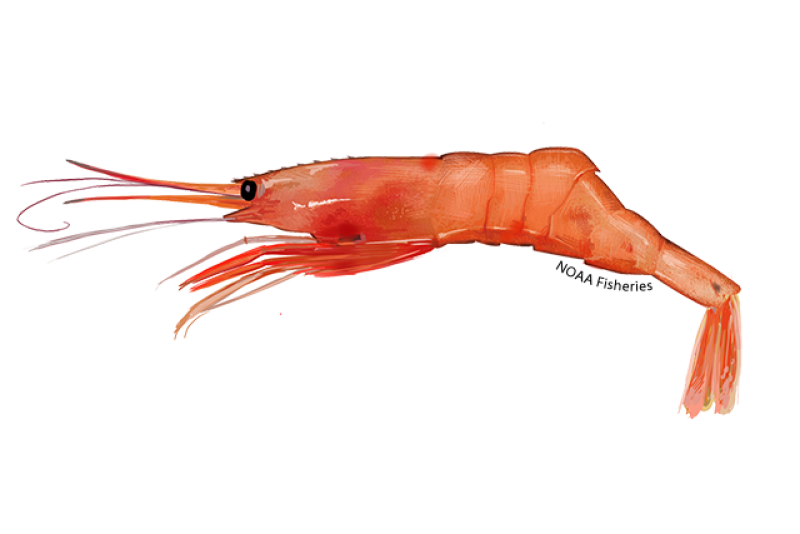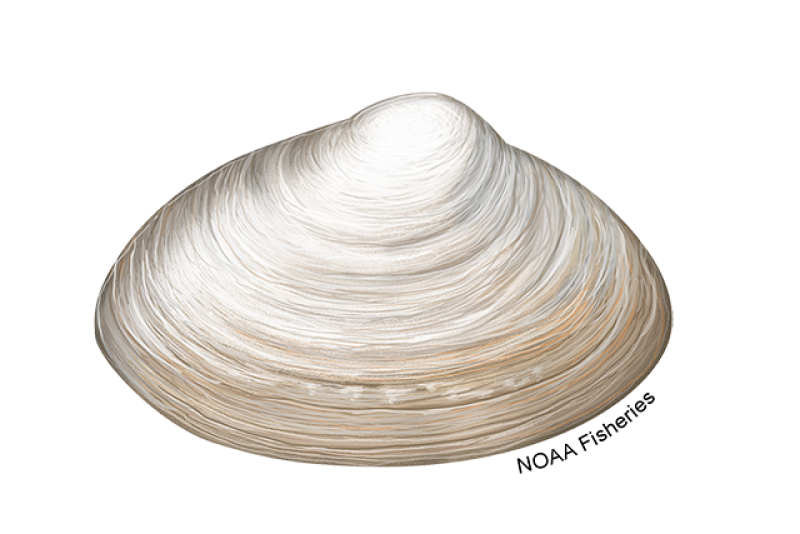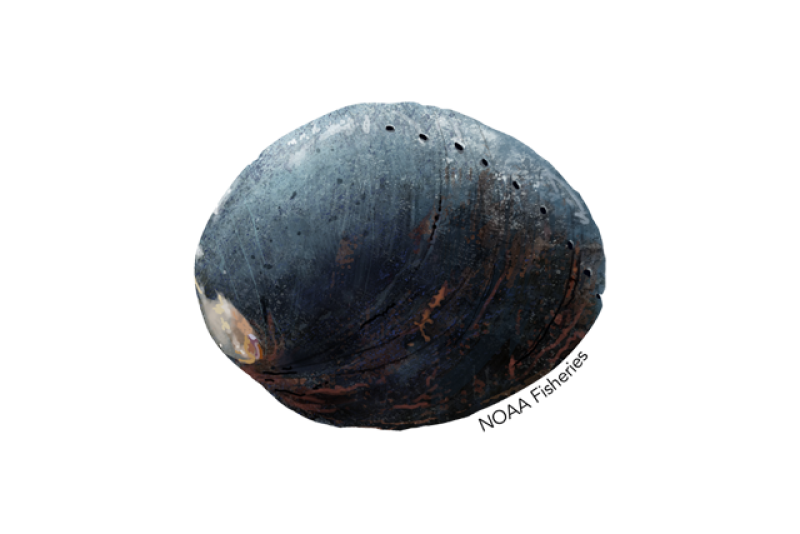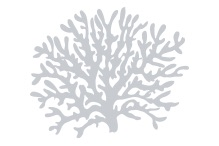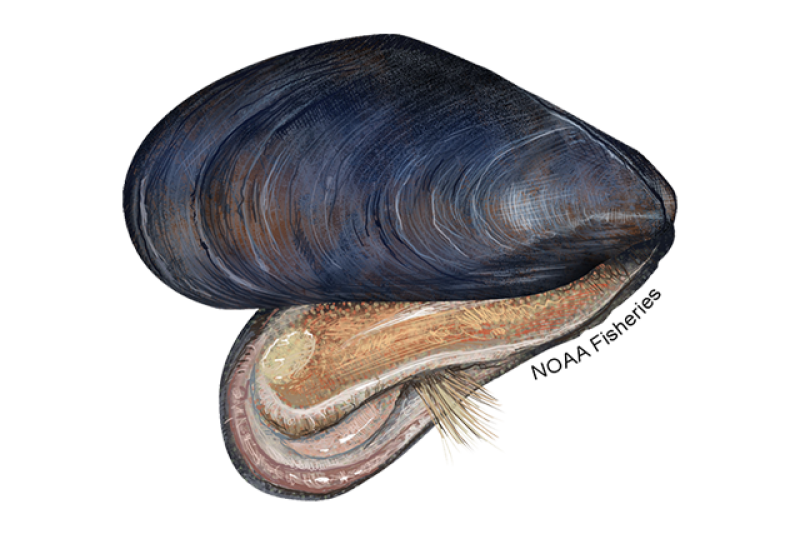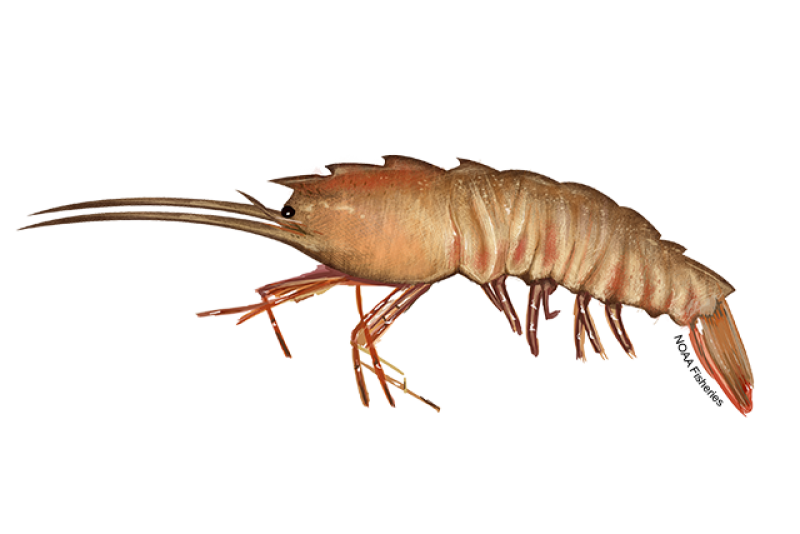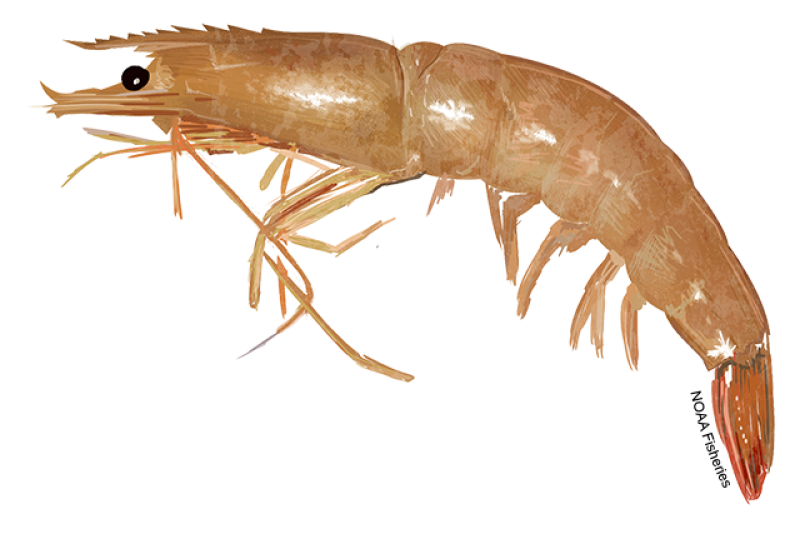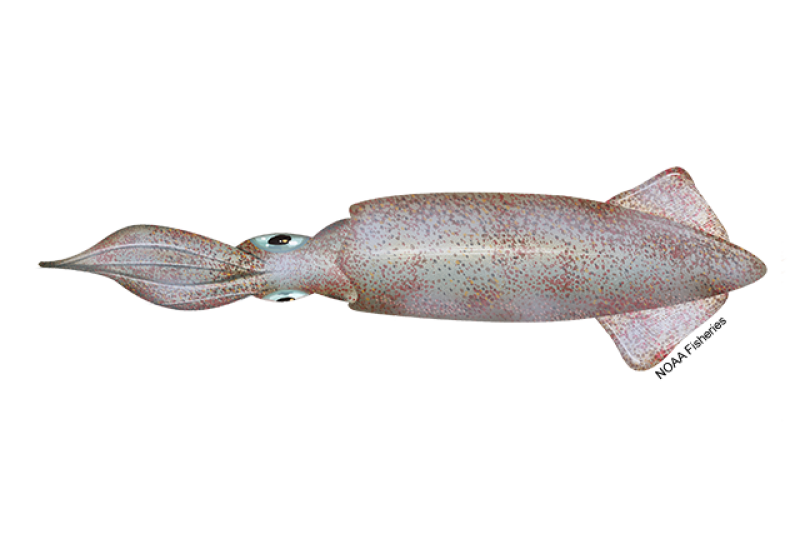Invertebrates
From crabs to octopuses, clams to marine worms, invertebrates play a significant role in ocean ecosystems. Many are important prey for fish, marine mammals, and humans. Others, such as corals and oysters, create essential habitat for marine species.
NOAA Fisheries is responsible for the sustainable management of many species of invertebrates—including white shrimp, Alaska snow crab, and Quahog clam—commonly harvested for human consumption. We are also responsible for protecting invertebrate species listed under the Endangered Species Act such as white abalone and elkhorn coral.
Invertebrates are the most diverse group of animals in the ocean. Some common marine invertebrates include mollusks, crustaceans, and corals.
Mollusks are a category of invertebrates with over 50,000 known species. They are soft-bodied animals that may have a hard external shell (formed by secreting calcium carbonate), a hard internal shell, or no shell at all. Mollusks include abalone, conch, oysters, and clams, as well as octopus and squid.
Crustaceans are a subcategory of invertebrates closely related to insects and spiders. They typically have a body covered with a hard shell or crust. Crustaceans include shrimp, krill, lobsters, and crabs.
Corals are known as colonial organisms because many individual creatures live and grow while connected to each other. The tiny, individual organisms that make up large coral colonies are called coral polyps. Stony, shallow-water corals—the kind that build reef habitat—are one type of coral. There are also soft corals and deep sea corals that live in dark, cold waters.
Species News
 Projected cooler temperatures in the Gulf of Maine could influence the productivity of species like American lobster, which prefer colder waters. Credit: Matthew Lawrence/NOAA
Projected cooler temperatures in the Gulf of Maine could influence the productivity of species like American lobster, which prefer colder waters. Credit: Matthew Lawrence/NOAA
New Seasonal Forecast Predicts Cooler Waters in Northeast
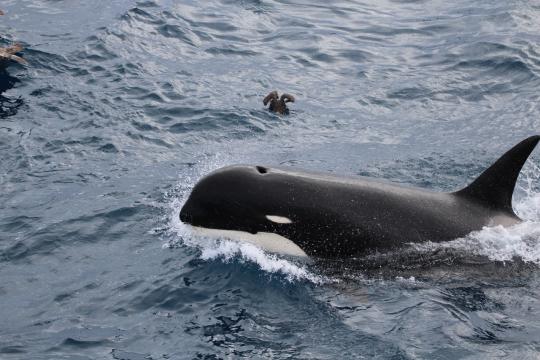 A Type D killer whale, a new species in the Southern Ocean. Credit: Paul Tixier
A Type D killer whale, a new species in the Southern Ocean. Credit: Paul Tixier
New Kids on the Block: Species Discovered by Our Scientists
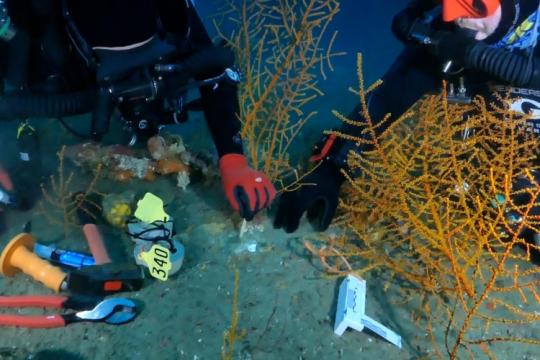 Technical divers Jake Emmert of Moody Gardens and Devin Waddell of Georgia Aquarium reattach a coral colony (Swiftia exserta) to the reef in the northern Gulf of America. Credit: Georgia Aquarium/Jonathan Langham
Technical divers Jake Emmert of Moody Gardens and Devin Waddell of Georgia Aquarium reattach a coral colony (Swiftia exserta) to the reef in the northern Gulf of America. Credit: Georgia Aquarium/Jonathan Langham
Reflecting on 15 Years of Science Since Deepwater Horizon: Supporting Restoration
Reflecting on 15 Years of Science Since Deepwater Horizon: Response and Assessment
Multimedia
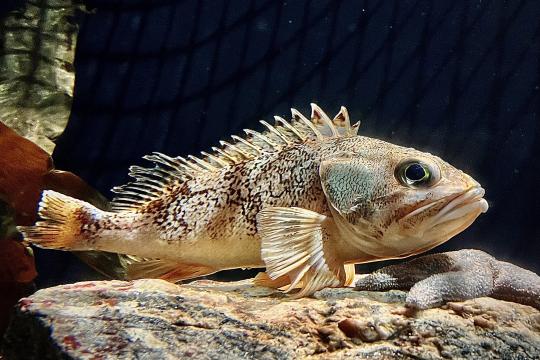

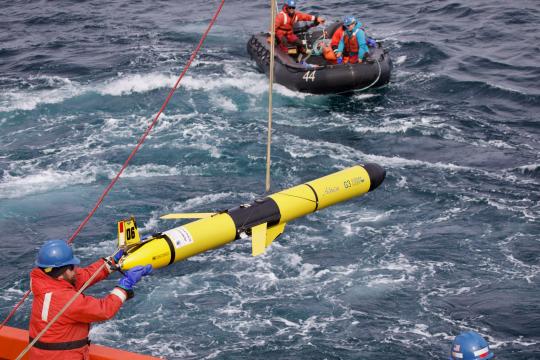 Glider “Adrian” getting deployed from the R/V Laurence M. Gould. Credit: Andrew Titmus
Glider “Adrian” getting deployed from the R/V Laurence M. Gould. Credit: Andrew Titmus
Research
Monitoring the Ecosystem in the Northeast
The most comprehensive, ongoing program exploring marine resources and oceanographic conditions in the Northwest Atlantic. Our analyses inform local and international fisheries management, protected species research, and climate science.
Surveys in the Northeast and Mid-Atlantic
We conduct research and monitoring surveys to better understand the physical, biological, economic, and social components of marine ecosystems found in the Northwest Atlantic Ocean from the Canadian Scotian Shelf to Cape Hatteras, North Carolina.
Oceanographic Drivers of Shortfin Squid
We’re working with the commercial squid fishing industry to better understand how ocean conditions and processes influence the variability of shortfin squid catch in the Mid-Atlantic.
Population Biology in the Northeast
We investigate and document the biology and ecology of fish in the western North Atlantic Ocean.
Understanding Sustainable Seafood
Well-managed wild-capture fisheries and environmentally responsible marine aquaculture play an increasingly important role in our food supply, our health, and the environment.

